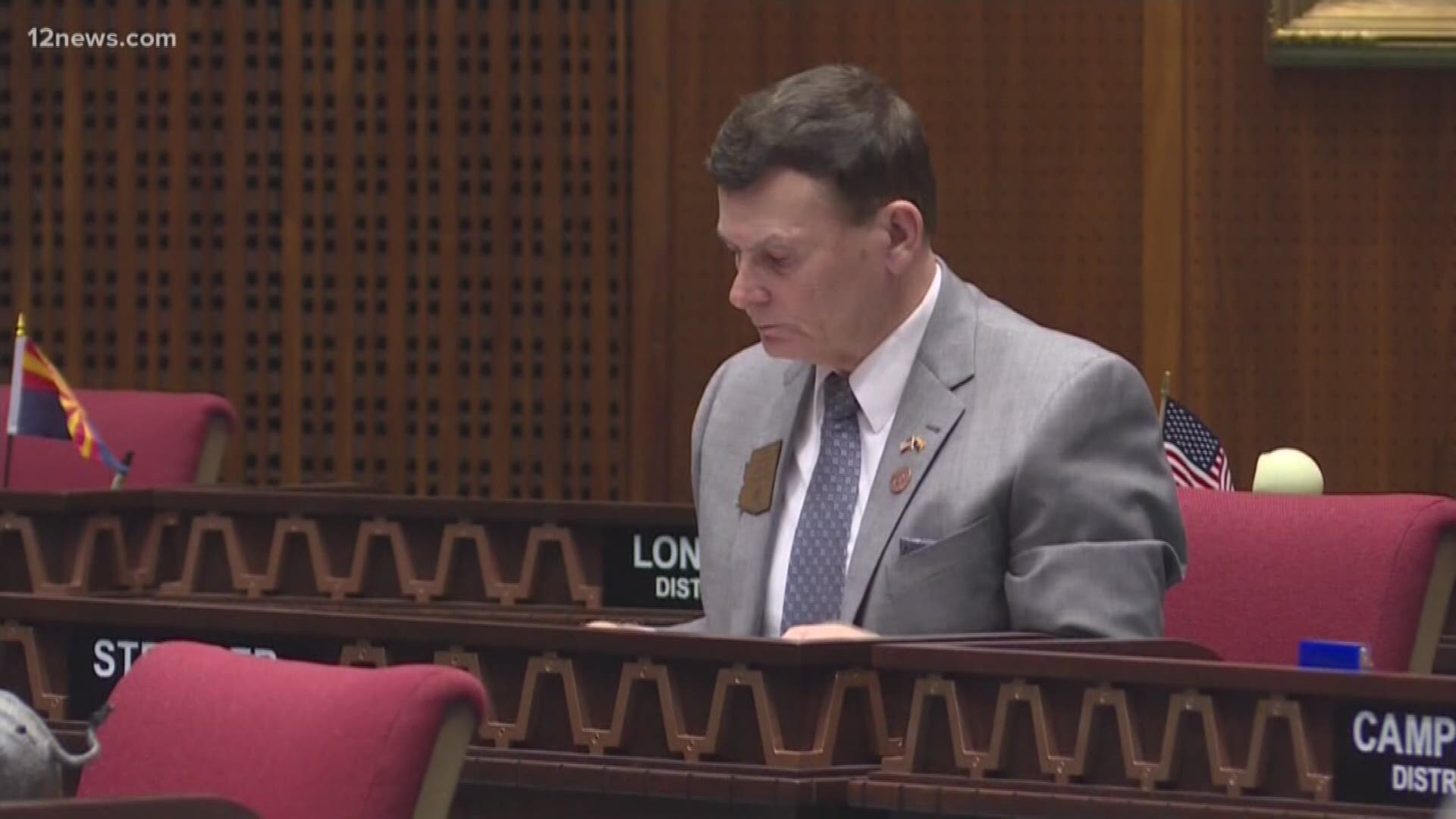PHOENIX (AP) — The Arizona House Ethics Committee spent just over $218,000 investigating former Rep. David Stringer, including $16,000 paid to a private investigation firm that tracked down a 1983 police report showing former Rep. David Stringer was accused of paying boys for sex, according to records released Wednesday.
Stringer resigned last month when confronted with the police report containing allegations he'd fought to keep secret.
PREVIOUSLY: Rep. David Stringer resigns amid ethics investigation of 1983 sex charges and comments on race
Invoices released under Arizona's public records law shows more than a dozen lawyers from Phoenix law firm Ballard Spahr worked on the case after partner Joseph Kanefield was hired to lead the investigation. Their services make up the bulk of the investigation's cost.
The law firm paid $15,838 to TorchStone Global LLC, a private investigation firm that provided the police report, which it obtained from a contractor. It also paid $35,000 to Granieri Private Investigations and Consulting, an Arizona-based firm that interviewed people who accused Stringer of making racist or otherwise inappropriate comments.
Stringer resigned last month when House Speaker Rusty Bowers confronted him with a Baltimore police report from nearly four decades ago. It showed that a teenage boy told detectives he and another teen met Stringer in a park, went to his apartment and were paid $10 apiece for sex. The boy said he'd met "Mr. David" for sexual activity at least 10 other times over several months, according to the report.
Stringer turned himself into police on Sept. 15, 1983, on eight sex charges.
Records show a Maryland-based investigator obtained the report from Baltimore police after explaining the form was required "for a legal inquiry in another state."
After the allegations were made public, Stringer wrote on Facebook that he was the subject of "salacious allegations of sexual improprieties that had no basis in fact." He has said he reached a deal with Baltimore prosecutors to accept probation before prosecution, which did not require him to plead guilty or go to trial.

